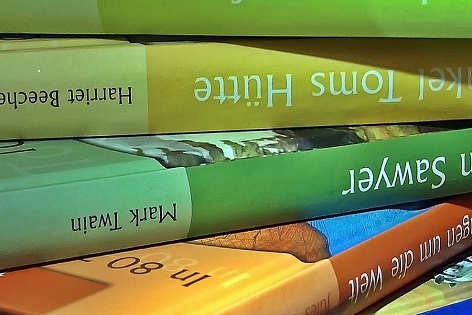Knowledge Transfer Workshop for Speech & Language Therapists
Date: 29 June 2018
Location: Meadow Suite, Park House, Whiteknights Campus
Book here
Several waves of migration have led to an increase in the number of children worldwide who start (pre)school in a language that is not their home language. While teachers can often tell that a monolingual child’s language is not as expected for their age and speech and language therapists can successfully identify language impairment in monolingual children, this is far from obvious when the language they evaluate is the child’s second language. The identification of language impairment in bilingual children poses a challenge for speech & language therapists, especially if they do not speak the child’s home language. Another important challenge regards the remediation of bilingual children with developmental language disorders. What intervention models are suitable for bilingual children to support their language and literacy development? What adaptations do we need to make to intervention programmes that have been developed for monolingual children?This day workshop will address interventions for children with DLD and ASD. It will include a session on Narrative Based Language Interventions for Bilingual Children with DLD by Prof Lisa Bedore (University of Philadelphia) and a session on a Language Intervention for children with ASD using Shakespeare by Ms Theodora Read (University of Reading).
Speakers
Prof Lisa Bedore (Temple University, Philadelphia)
Narrative Based Language Interventions for Bilingual Children with DLD: Fostering Growth in Two Languages
Bilingual children with developmental language disorders show the greatest gains when interventions support their home and school languages. Supporting the home language provides a foundation for the development of English as an additional language. In this session, we will explore how a book based narrative intervention can be used with bilingual children with developmental language disorders. We will begin by reviewing a bilingual language intervention model (Peña, Bedore, and Lugo-Neris, 2017) that identified the key ingredients necessary to support language and literacy development. Several studies illustrate the utility of an approach based on this. Of special interest, we have explored how matching the language of reading instruction (often English) results in changes to language skills. In the second half of the session we will view videos of the intervention techniques and using example of key activities develop intervention activities that can be used in local school and clinic settings.
Lisa M. Bedore, PhD, is Professor and Chair in the Department of Communication Sciences and Disorders at Temple University, Philadelphia, Pennsylvania. She directs the HABLA (Human Abilities in Bilingual Language Acquisition) Lab at Temple. One of the primary goals of her work is to understand how language knowledge is integrated across the domains of morphosyntax, semantics, and phonology in bilingual children with and without developmental language disorders. She explores this question through the study of performance on language production tasks and narrative production, studies of classification accuracy of children and by evaluating the outcomes of bilingual language interventions. The work also has contributed to test development project such as the Bilingual English Spanish Assessment (BESA, 2018). Her work is supported by the National Institute of Deafness and Other Communication Disorders, USA.
Ms Theodora Read (University of Reading)
Using Shakespeare in a Language Intervention for children with ASD
There are a number of different approaches to developing social skills in young people with Autism Spectrum Disorder. The use of role play and drama has been shown to facilitate social development in neuro-typical children and children with ASD (Mehling, Tasse, & Root 2016). In this session we will explore some elements of the Shakespeare’s Heartbeat programme (Hunter 2014). This approach uses structured games with interaction between different characters from The Tempest. It enables participants to focus on moments in which thoughts, feelings and behaviours are connected, in order to develop associations between sensory experiences and emotional understanding. In this session we will use the Heartbeat and also work through a number of the games (both verbal and non-verbal) described by Hunter. We will conclude with a discussion of what adaptations might be needed to use this approach with multi-lingual children with ASD
Theodora Read, MSc, is a Clinical Tutor and a Highly Specialist Speech and Language Therapist at the University of Reading. Her previous work has including developing and evaluating rehabilitation and habilitation for adults and children using Cochlear Implants. Her current clinical practice specialises in developing higher level language skills (particularly inferential skills) and social/pragmatic skills in older children and young adults within mainstream education settings. She works closely with Catherine Woolley from Oxford Health NHS Trust on incorporating Shakespeare’s Heartbeat in to social communication interventions.
This free event is funded by the Centre for Literacy and Multilingualism (CeLM).
Workshop schedule:
9:00-10:00: Registration & tea/coffee
10:00-12:30: Lisa Bedore: Narrative Based Language Interventions for Bilingual Children with DLD: Fostering Growth in Two Languages
12:30-13.30: Lunch
13:30-15:00: Theodora Read: Intervention for children with ASD using Shakespeare
Admission is free, capped for 40 participants. Registration is required. Book your place(s) now to avoid disappointment.




